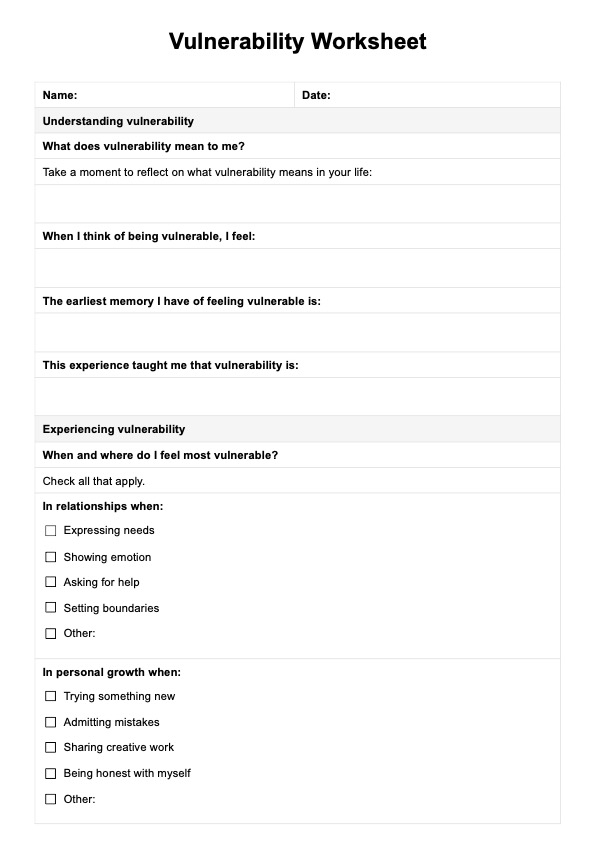A Vulnerability Worksheet is a structured tool for individuals to explore their feelings and beliefs about vulnerability. It encourages self-awareness and helps identify barriers to being vulnerable by guiding users through reflective questions.

Vulnerability Worksheet
Discover the Vulnerability Worksheet, a powerful tool for helping patients enhance self-awareness and emotional resilience.
Vulnerability Worksheet Template
Commonly asked questions
A Vulnerability Worksheet can benefit individuals seeking personal growth, improved emotional intelligence, or better relationships. It is particularly useful for those struggling to express emotions or fear intimacy. Mental health professionals may also use it as a therapeutic tool to help clients explore and embrace their vulnerabilities in a safe environment.
Common fears associated with vulnerability include the fear of rejection, judgment, or ridicule from others. Many individuals worry that exposing their true selves may lead to emotional pain or loss of control over their image. These fears can create barriers that prevent meaningful connections and hinder personal growth, making it essential to address them through self-reflection and supportive environments.
EHR and practice management software
Get started for free
*No credit card required
Free
$0/usd
Unlimited clients
Telehealth
1GB of storage
Client portal text
Automated billing and online payments











